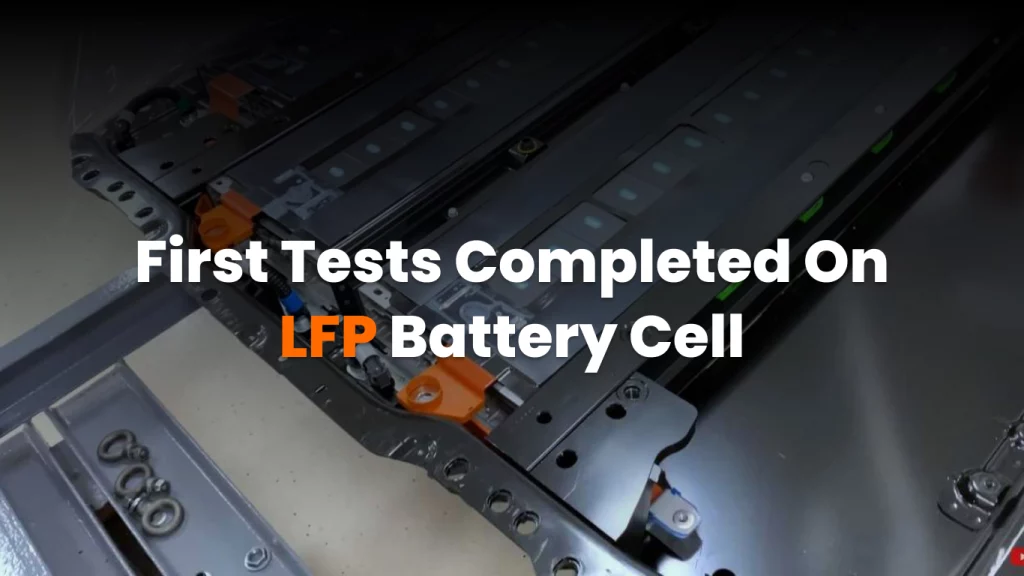Revolutionizing Battery Production: Ultion’s Breakthrough in North American Lithium-Iron Phosphate Cells
The demand for sustainable and reliable energy storage solutions is at an all-time high, propelled by advancements in renewable energy and emerging technologies. In a promising development, Ultion Technologies, a company based in Nevada, has successfully tested lithium-iron phosphate (LFP) battery cells produced entirely from North American materials. This significant breakthrough is indicative of a larger trend toward localized supply chains and self-sufficient battery production, which is crucial in an era focused on reducing dependency on foreign materials.
Forging a North American Supply Chain
In 2023, Ultion Technologies took a substantial step forward by signing a memorandum of understanding with Canadian companies to establish a localized supply chain for the production of battery cells. This collaboration highlights a growing initiative to harness domestic resources, thereby reducing reliance on global imports that often complicate logistics and result in geopolitical uncertainties.
The LFP cells tested by Ultion are notable for their choice of base materials sourced entirely from North America:
- Phosphate: High-purity phosphoric acid was derived from igneous phosphate concentrate mined at the First Phosphate Bégin-Lamarche property located in the Saguenay–Lac-Saint-Jean region of Quebec, Canada.
- Iron: The iron powder utilized in the cells was produced from magnetite concentrate sourced from the same property in Quebec and subsequently processed by GKN Hoeganaes in Tennessee, USA.
- Lithium: Lithium carbonate was extracted by Century Lithium Corp, which operates in Nevada, USA, further cementing a strong regional supply chain.
- Graphite: The natural graphite-based active anode material was sourced from Nouveau Monde Graphite’s operations in Quebec, ensuring that the cells benefit from high-quality materials.
Testing and Performance Metrics
The assembly and testing of the LFP battery cells were carried out in a standard 18650 cylindrical format, comparable in size to a AA battery. This design is widely recognized and utilized in various applications, including everyday electronics and electric vehicles.
Independently validated results from Ultion’s testing confirmed several critical performance metrics:
- Stable Capacity: Each tested cell exhibited a stable capacity of 1.6 amp-hours (Ah), indicating a consistent ability to store and deliver energy.
- Cycle Life: The cells displayed a projected cycle life of at least 2,000 cycles with 80% capacity retention, demonstrating durability and longevity essential for commercial applications.
- Minimal Cell Variation: The testing showed reliable performance with minimal variation between individual cells, which is crucial for ensuring the uniformity of energy output in large packs.
- High Discharge Rate Stability: These cells maintained strong stability at a 5C discharge rate, an important factor for applications requiring rapid bursts of power, such as in grid storage, data centers, and defense systems.
Strategic Partnerships and Market Implications
One of the significant endorsements of Ultion’s progress comes from Torus, a Utah-based manufacturer specializing in hybrid flywheel and battery storage systems. Torus has invested in Ultion and expressed its intention to procure the North American-produced LFP cells for its own products tailored to utilities, data centers, and commercial and industrial clients.
Nate Walkingshaw, CEO of Torus, conveyed enthusiasm about Ultion’s advancements, stating, “Ultion’s progress gives us reliable supply, strong performance, and a clear competitive edge. What excites us most is the combination of performance and strategic value.” This sentiment highlights the dual benefit of not only having a reliable domestic supply but also the performance attributes that align well with customer expectations.
The Broader Implications for the Battery Industry
Ultion’s achievement in producing LFP cells from wholly North American materials underscores a pivotal moment in the battery industry. The move toward localization of battery material sourcing is essential for several reasons:
- Supply Chain Security: With geopolitical tensions affecting global trade, having a localized source of battery materials mitigates risks associated with foreign dependencies.
- Environmental Considerations: Localizing the supply chain can also lead to a reduction in the carbon footprint associated with transporting materials over long distances.
- Economic Growth: Developing a domestic battery supply chain holds the potential to create jobs across multiple sectors, from mining and processing to manufacturing and assembly, ultimately contributing to broader economic growth.
Conclusion
The successful testing of lithium-iron phosphate battery cells made entirely from North American materials by Ultion Technologies signifies an important step toward creating a robust local battery production ecosystem. As more companies explore similar partnerships and initiatives, the transition towards a sustainable, self-sufficient energy future appears increasingly achievable.
The implications for energy storage solutions in grid storage, data centers, and various industrial applications are profound, potentially leading to more reliable, efficient, and eco-friendly energy systems.
By fostering innovation and collaboration, Ultion and its partners are not only reshaping the battery landscape but are also contributing to a broader movement aimed at achieving energy independence and sustainability in the North American energy sector.




